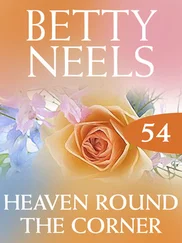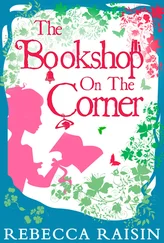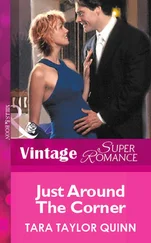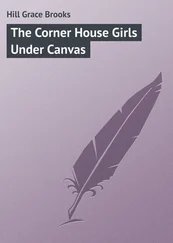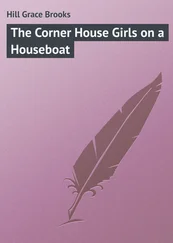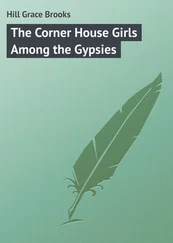“Hi, Amália.”
“Hi…”
Then I took hold of a finger on my left hand, raised an eyebrow, and told Kurt that I’d hurt my finger opening a window, asked if I could get the mercurochrome from the bathroom in his room (something I sometimes did). Kurt nodded yes and asked Amália to make him some coffee and see if the cow was still giving milk. And the two went out.
I opened the bathroom closet, rummaged around, ended up finding the foundation. With my usual tendency to overdo it, I plastered my forehead with foundation. Now no one would ever imagine I had that damn zit.
I went to find Amália. Not because her now-opulent flesh made her newly appealing in my eyes, nothing like that. It’s that a curiosity was gnawing me: to know what had happened to her, where she’d gone, with whom.
Amália was trying to milk a cow that recalled one of those animals decaying on drought-scorched earth.
“Where were you?” I asked.
“I went crazy for one of the landless squatters, I followed him. I ended up pregnant, ran away, got bigger and bigger, so swollen that one day as I went through a little village I stopped in the pharmacy to weigh myself: two hundred and fifty-three pounds. I was ready to pop. I looked for my sister and found her right where I suspected, twenty miles away — she pulled the thing from my belly faster than I could have imagined — I didn’t stick around long, I ran away through the countryside with that thing in my arms and drowned it in the first river I came to. They caught me, imprisoned me, now I’m here.”
“So then a long time really has gone by.” I affected fright, as though I was only then discovering it, at that instant.
I ran my fingers through the thick paste of sweaty foundation that was almost running into my eye.
“And the milk?” I asked.
“The milk won’t come out.” Amália yanked the cow’s teats and made a strong expression of either rage or repugnance.
Then the cow tottered, tottered, tried to take a few steps, fell back, collapsed, and upon collapsing, its bones made a muffled noise, as though there were soundproof glass between me and what I was watching.
“Bye, Amália,” I said.
As I neared the manor I saw the shape of a man on the porch, I could tell he was knocking on the door, a small suitcase at his feet — I saw Kurt open the door, the man entering, running his hand through his gray hair, and when the man ran his hand through his hair I understood it was Otávio with his old habit of running his hand through his grizzled hair.
First Amália, now Otávio: they’re coming back, I thought, they don’t know how to live out from under Kurt’s wing, they tried to extricate themselves but came right back to the center of what they never should have left.
And I, was I not another of Kurt’s charges? I couldn’t forget that he was already old, I didn’t have much time to get myself together and avoid ending up like the other two, stripped of everything that I’d managed to remake, far from here.
“How’s your mother, Otávio?” I asked, taking his cold hand.
“She died, just like Gerda died.”
Otávio was wearing a panicked expression. He’d transformed into a worn-out old man, a lump, larger than an avocado, had formed on the back of his head. He could barely turn his head, and when he tried he grimaced horribly in pain.
That afternoon I thought about appealing to Kurt’s heart, always so impassive, even with me, whom he seemed to hold in a certain esteem. So I invited Otávio to get some fresh air with me — he came along, and we went for a walk, he with a gimp leg, and when we got to the southern elevation I told him that tree over there is the finish line, that we’d play around a little, not exactly run like kids, just get him moving around a bit, try to warm up his rheumatic leg — come on, tag me, I said, and he came at me, dragging that leg, I ran backward, said come on, faster, I’m close to the line, he was gasping, exhausted from dragging his leg in my direction, drooling from pure excitement — Otávio, time had passed by him, too, plopped down, steadied one of his hands against a stone: Otávio’s tired, I said, he wants to go home, doesn’t he?
When we got back, I asked Kurt to lend me the car for the first time. I need to go back to Porto Alegre, I said. You don’t have a driver’s license, he replied. I told him not to worry. Otávio was sitting on the porch steps, bending over to look at an anthill.
I found a parking space on Riachuelo, and went walking down Borges. There, from Largo de Prefeitura all the way to Rua da Praia, a dense crowd was shouting. A windy night, a pamphlet blew between my legs. On the corner of Salgado Filho I asked a creole woman what was going on. She told me it was a rally for Lula, but he hadn’t arrived yet. A man was giving a speech on the platform, flags, everyone fired up. It was December, and there was an even fuller moon than the night before. Ah, next Sunday was the presidential election, the runoff, I mumbled to myself, so the creole woman couldn’t hear.
What time is Lula supposed to arrive? I asked the creole woman, who I now saw was rather sexy, well put together, and she said she didn’t know, she’d been there since five and the crowd just kept growing — she was talking and I couldn’t respond with more than an ah…the thing was that I’d never banged a creole and I thought the time had come. I noticed it was already a different voice speaking from the platform, but I couldn’t hear anything the guy was saying because the crowd was shouting campaign slogans, a group was passing by singing a Carnival marching tune with the lyrics all changed to other words that I couldn’t understand amid the ruckus, and the creole woman was right there in front of me, her plump mouth wouldn’t stop moving — commenting on the rally I guess — wearing a low-cut blouse so I could almost see her entire breasts, heaving, sweaty, and excited to tell me everything about the rally.
It’s so damn hot, I said, why don’t we go have a beer while we wait for Lula?
We went down Rua da Praia, the sounds of a drum circle on the corner of Uruguai mixing with the sound of beer cans rolling along the ground, kicked along consciously or not. Later, a man brandishing a Bible with a black cover fumed to anyone who’d listen that this cannot be, this cannot be. A street kid was fooling around, mimicking the man, pretending to stab him with something when his back was turned, and the crowd laughed, laughed at the kid, only I couldn’t laugh, because the boy was the spitting image of me as a child, it was just a question of glancing at the portrait I carried in my wallet, from when I was eight, nine years old max, with a Grêmio club T-shirt, the one taken by my father in Parque da Redenção: look at this, I showed the photo to the creole woman — what’s your name again? I remembered to ask, Naíra, she replied, Naíra, I repeated, look, this kid in the photo is me, and I ask you, the boy who was just here trying to fuck with the guy with the Bible in his hand, that boy has the same face as mine in this photo, right? Who is he? Naíra asks. I’m going to go find out, I reply. Naíra says she never saw a resemblance like that, even in twins, so then I go brandishing the photo until I find the boy, still entertaining himself with the man with the Bible in his hand, and when the boy sees me he takes off running, clearly afraid that I’m a cop, and the man with the Bible in his hand comes over and puts his face into mine and in his thick rasp says, if we’re going crazy it’s because God is making us crazy, if we return to sanity it’s for the rest of you, Corinthians — and then he pointed to my chest, saying that those were the words of Saint Paul, the words of Saint Paul, I repeated, and suddenly he reminded me of a priest from back at the church in Glória who used to talk to me when I was more or less the age of the boy in the photo — he told me about the letters of Saint Paul to the Corinthans, Corinthians, Corinthonians, whatever, that priest would say: the purest poetry you could ever want to read, when you’re bigger you’ll see…and I turned to Naíra, half-stunned, and embraced her madly, and thus entwined we kept on walking.
Читать дальше
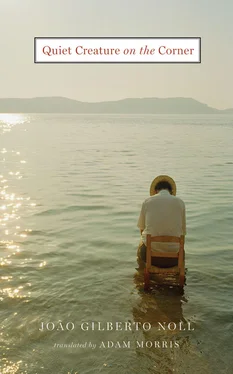
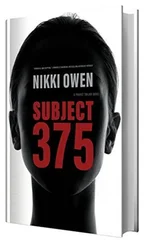
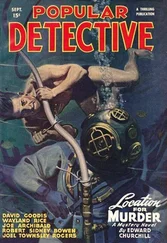
![Quiet Billie - The Fastest Man Alive [СИ]](/books/421969/quiet-billie-the-fastest-man-alive-si-thumb.webp)
![Quiet Billie - The Promise Land [СИ]](/books/421970/quiet-billie-the-promise-land-si-thumb.webp)
